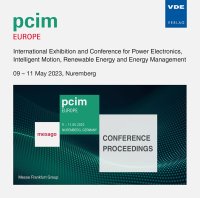Material Innovation, Process Development, Reliability & Challenges with Copper Sintered Interconnects for High Power & Optoelectronics Packaging
Konferenz: PCIM Europe 2023 - International Exhibition and Conference for Power Electronics, Intelligent Motion, Renewable Energy and Energy Management
09.05.2023-11.05.2023 in Nürnberg, Germany
doi:10.30420/566091193
Tagungsband: PCIM Europe 2023
Seiten: 6Sprache: EnglischTyp: PDF
Autoren:
Bhogaraju, Sri Krishna; Elger, Gordon (Institute of Innovative Mobility (IIMo), Technische Hochschule Ingolstadt, Germany)
Inhalt:
Conventional lead free-based solders have a low melting point (220-230 °C), thereby limiting the reliable temperature use to below 150 °C. Alternatives emerged in the form of high temperature solders, transient liquid phase bonding and solid state sintering. Among these alternatives, solid state sintering has shown a high rate of adaptability by the industry, with silver sintering under pressure industrialized in power electronics packaging and pressure-free Ag sintering in optoelectronics packaging. However, silver is expensive and is reported to be prone to electromigration. Copper, in recent years has emerged as a prospective low cost alternative to silver. It has comparable electrical and thermal characteristics, but offers a substantial cost advantage over silver, is abundantly available and recyclable and has a much lower carbon footprint that silver. However, copper is highly prone to oxidation and has a slightly higher sintering temperature to silver due to the higher melting point. Therefore, addressing these aspects will be critical for the adaptation in the industry. This work compares the performance of silver sintered interconnects to copper sintered interconnects under high thermo-mechanical stress conditions. Copper sintered interconnects are observed to provide improved reliability and performance over state of the art in silver sintering under the same processing conditions, thereby providing a promising alternative to silver.


